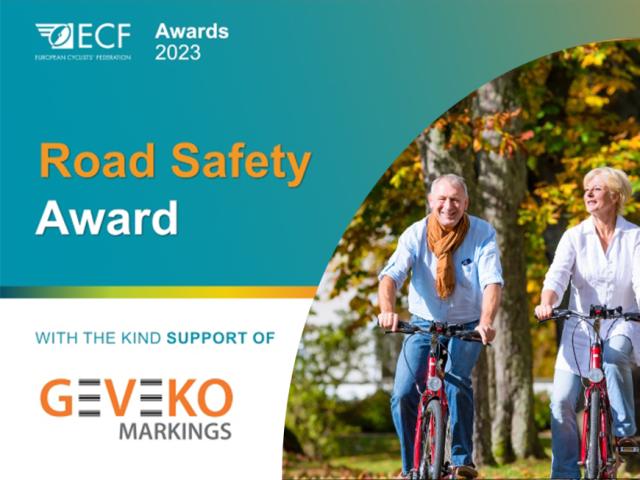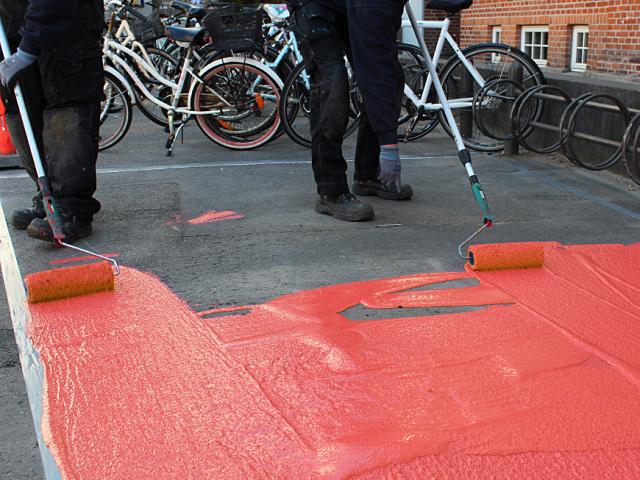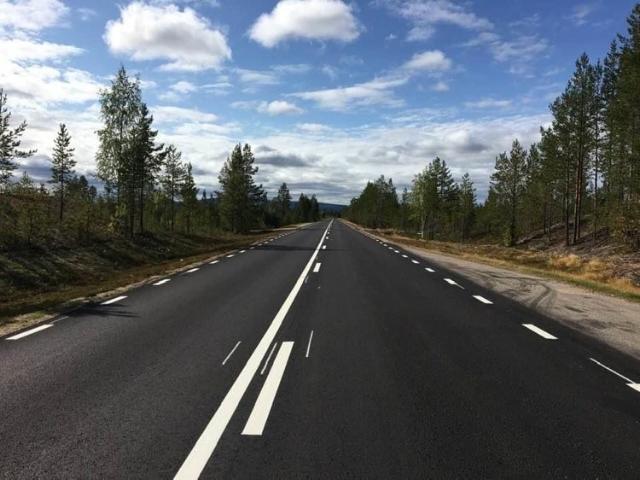Quality road markings can save lives
Road markings play an important role in traffic safety. A role that can hardly be exaggerated, if you ask us. Even so, you will find a lot of roads on which the markings don’t live up to the recommended standards for visibility.
“It doesn’t have to be a relatively large investment to improve the safety of the roads”, says Toni Ogemark, Product Line Director at Geveko Markings “Because if you look at it in an overall economic perspective, what are the costs of a fatal accident?”.
Visible road markings help create optimum driving conditions for road users by making sure that they can actually see the markings. This is especially known to be a problem in dark and wet conditions, and it is of course is a huge factor in terms of making the roads safer. But modern navigation technology which can be found in cars today are also very dependent on the right type of markings:
“Modern day driver assistance systems are built on camera technology that registers edge and centre lines as a contrast to the rest of the road. But if there are no visible lines for the cameras to see, the system doesn’t work,” says Toni Ogemark and continues: “Both this new technique and the human drivers need the road markings. In fact, it’s quite simple: If you can’t see the marking, the cameras won’t be able to either.“
The problem with barely visible markings is the result of many factors. One of them is the use of low-quality markings. These may have a high initial retroreflection, but they fade quickly over time leaving the roads with markings that don’t live up to the recommended standards. Another factor is the unclear rules surrounding the use of structured, Type II markings. These markings have a high retroreflection at night and on wet roads and could therefore be beneficial in terms of increasing visibility. Finally, there is a general lack of road marking maintenance to ensure that the standards are continuously up to date.
Many of these issues are also touched upon in the EU Directive on road infrastructure safety management. In the part that focuses specifically on road markings and road signs it is stated that:“Member States shall pay specific attention, in their existing and future procedures for road markings and road signs, to readability and detectability for human drivers and automated driver assistance systems.”
Furthermore, the Commission has established a group of experts who works to assess the opportunity to establish common standards and specifications for road markings and signs.
At Geveko Markings, we fully support all such initiatives that can heighten safety on the roads for all of us.

Third time sponsors of the ECF awards
When the ECF Awards ceremony takes place at the Velo-city Cycling Summit 2024, Geveko Markings will be the proud sponsor of the Road Safety Award for the third time in a row.

Geveko Markings Acquires PPG Traffic Solutions Business in Australia and New Zealand
Geveko Markings is excited to announce the acquisition of PPG's Traffic Solutions business in Australia and New Zealand (formerly known as Ennis-Flint Australia and New Zealand).

Sponsors of the Road Safety Award
For the second year running, Geveko Markings will be the proud sponsor of the Road Safety Award.

PlastiRoute™ Rollgrip achieves certification in Australia
At the end of March, our PlastiRoute™ Rollgrip was certified by the Transport Infrastructure Product Evaluation Scheme (TIPES) which is an official national scheme in Australia.

